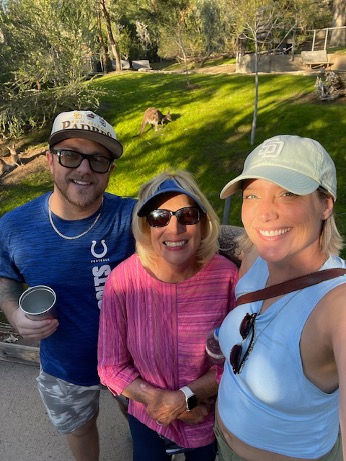The Significance of Writing Your Story
- annerichardson58
- Dec 14, 2024
- 2 min read
Updated: Feb 9, 2025

Last Monday at Phasing Out of Trauma meeting, Lisa presented a brief teaching on how writing our story and then sharing it out loud is so healing. I knew that from experience but didn’t realize there is a chemical release in the brain when we write and share our stories. Here is some of the information she shared.
In phase one, you are encouraged to write your story. This is not easy to ask you to do, and it's so essential to your healing journey.
For thousands of years, humans have relied on storytelling to engage, pass on lore and traditions and share personal experiences. But modern science tells us there is much more to it. We aren't just spectators in a story; we're participants.
We get angry when characters get angry, we laugh when they laugh, and we feel emotional pain when they do. We tend to root for the underdog (an unconscious bias called "the underdog bias" ... obviously!), and we care about the outcome. We care about the ending, and we are glad to know that your story has not yet ended!

What Happens in the Brain When You Just Tell a Story?
When we tell stories, our brain lights up and connects to otherwise unrelated subjects, facts, opinions, memories, feelings, sensations, and experiences. These connections heighten our ability to remember experiences and improve information processing. Emotions are a signal to the brain that this experience is essential. As a result, the brain pays much more attention and stores the information charged with emotion in deeper brain regions, such as the cerebellum. The more we can relate to ourselves and the people within our stories, the more we'll be able to recall more and more of the story — the story will flesh itself out over time as you continue to allow yourself to explore it.
STORYTELLING CHANGES THE BRAIN
Stories, in general, are so powerful that the neural activity in our brain is five times our regular activity. Compared with processing data, a story engages up to seven different brain regions as we imagine the experiences, especially one with distress or tension, to capture our attention. When we can connect on an emotional level, our brain networks light up like a Christmas tree. Telling your story releases the neurochemicals that sharpen focus and connect us on an emotional level.
Some women I have met with say, “I am afraid someone will read it!” I encourage them to hide it somehow and destroy it after sharing it. Even if all they do is share it with God, alone, can release the chemicals in the brain. The result is that the shameful secret is broken, and healing can begin to happen.
Write your story!
For more information on this teaching or a guide to writing your story, please email me and I will send it to you.



Comments